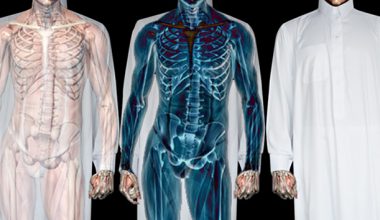
Come Ramadan, diets are radically altered. What many people don't realize though is that the month of Ramadan gives you the opportunity to focus on bringing back a balanced and healthy regimen into your life. You will be giving your stomach a break, and by doing so you will be able to detoxify your body from any accumulated wastes.
Through fasting, you can learn how to manage eating habits and improve self control. Always remember that there is no need to consume a great amount of food at iftar, dinner, or suhoor. In our region, unfortunately, it has become customary to "stock up" for Ramadan. The intake of oily foods skyrockets and more is consumed during this time than in the course of several other months combined. This is why most people worry about gaining a substantial amount of weight during these four weeks.
To fully benefit from fasting, you need to focus on both the quality and quantity of food you eat during this blessed month. Try to follow a well balanced plan that doesn't differ too much from your normal everyday diet, meaning your meal should remain a meal and not become a feast. Your diet should help you maintain your current weight, but if you are over-weight, then Ramadan is an ideal time to shed those extra pounds.
Make the most out of your Ramadan diet by ensuring you add foods from all the major food groups into your meal. Increase your intake of complex carbohydrates. These foods will help release energy slowly during the long hours of fasting, making you less hungry during the day. It is therefore a good idea to consume such foods during suhoor. Foods rich in complex carbohydrates are grains and seeds, such as barley, wheat, oats, beans, and lentils, whole meal flour and pasta, and unpolished, basmati rice. Fiber-rich foods are also digested slowly and include bran, cereals, whole wheat, green vegetables, dates, and almost all fruits. Alternatively, refined carbohydrates or heavily processed, fast-burning foods last for only 3 to 4 hours and may be better taken at Iftar to rapidly restore blood glucose levels. These include white rice, white flour, and sugar. Fried foods and foods containing too much sugar such as sweets, the absolute joy of many people, should be limited as they can halt your weight loss and cause various health problems.
Drink sufficient water and juices after iftar and reduce your intake of caffeine-containing beverages, especially at suhoor, to avoid dehydration and to detoxify your digestive system. As always, don't forget to engage in some kind of light exercise too. Give your body the food and exercise it needs, don't give in to excessive food cravings, and let Ramadan be the beginning of a healthier you.
– Maryam AlHamad
Originally Published in August 2009






